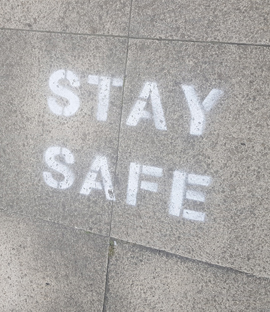The second of three speakers at a Shetravel webinar yesterday was Charlotte Copeland, a psychotherapist and MD of SafeHaven. The event was hosted by Shetravel founder Anna-Liisa Tampuu, the head of intelligence for the emergency medical and security response company Northcott Global Solutions (NGS).
The theme of her talk was stress – one context being the anxiety that we may feel as a traveller. Her company offers mental health training for the workplace; but much of what she described was relevant to anyone in a stressful workplace, including security workforces and others dealing with emergencies and stressful incidents.
She began by defining what is inducing stress; there has to be something that we perceive as a threat, for us to experience stress; which changes us bodily, our thinking, emotions and behaviour. As she explained, stress is not wholly a bad thing. We are uncomfortable if there is too little stimulation for us in life; we may feel bored and apathetic. Too much stress, whether acute or chronic, such as too much workload, and we may feel distressed, burned out. In between those two extremes, we may feel stimulated by some stress, but feel in balance, and able to work through problems. At the end of a spectrum of stress, people may self-harm.
How to be resilient in the short and long term, and to come down from stress, let alone during the covid-19 pandemic, that may be a potential stressor, if you have fear of exposure to the virus? Charlotte offered some ideas – around diet, exercise, sleep (that is, for the body). For the mind, be self-aware, she advised; build ‘good habits’, and connect to ‘positive institutions’. Embrace your moral compass. Think deliberately optimistically. Talk, or write, about your thoughts.
As for behaviour, break things down into small steps, and stay in contact with people you trust. She ended with some basics. Understand what stress you are exposed to (that you may respond to with a glass of wine in the evening, only that may become a habit, that has consequences for your health and it becomes harder to change for the better). Instead, ‘actively employ coping strategies’, she suggested. And have a plan for your self-help, whether by yourself, or in your organisation. Mental health in the workplace was the theme for the webinar’s third and final speaker, Claire Bull.










